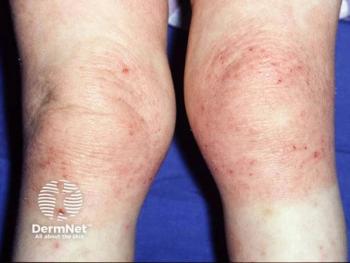
Should Some Infants be Screened Before Peanut Introduction?
An investigation examines which infants might require screening before peanut introduction.
The best practices for peanut introduction has radically changed over the past decade, with early introduction being recommended to reduce the likelihood of developing a peanut allergy. Whether to screen certain groups who have been considered high risk, such as those with moderate-to-severe eczema, has been a subject of debate. An
Infants aged 4 to 11 months were recruited to the study using social media advertising, direct mailing to a variety of pediatric practices, letters to patients, and direct recruitment. In order to be included in the study, the infant could have no history of peanut exposure or reaction, no history of peanut immunoglobulin E or skin prick testing, and met at least 1 risk factor: another food allergy, a first-degree relative with a peanut allergy, and moderate-to-severe eczema. The infant was given a physical examination, a skin prick test to peanut extract, histamine, saline, and blood draw. Depending on the result of the skin prick test, the infant either had peanut observed feeding, an oral food challenge, or were given a referral to an allergy clinic with a diagnosis of peanut allergy.
There were 321 infants included in the study: 78 with eczema only, 11 with other food allergy only, 107 with first degree family history only, and 125 with more than 1 risk factor. The investigators found that 18% of the 195 participants with eczema, 19% of the 59 infants with another food allergy, and 4% of the 201 participants with a family history were found to have a peanut allergy. Among the 115 with a family history but no eczema, only 1% had a peanut allergy. The investigators found that among the infants with eczema, older age (odds ratio [OR], 1.3; 95% CI, 1.04-1.68 per month), a suspected or diagnosed other food allergy (OR, 3.98; 95% CI, 1.62-9.80), either Black (OR, 5.79; 95% CI, 1.92-17.4 compared with white) or Asian race (OR, 6.98; 95% CI, 1.92-25.44), or a higher SCORing atopic dermatitis score were linked to peanut allergy.
The investigators concluded that reserving screening before introduction might only be necessary for infants with moderate-to-severe eczema. Additionally, because later age of introduction is linked with a higher risk of peanut allergy in infants with eczema, the results continue to support introducing peanut as early in a child’s life as possible.
This article originally appeared on our sister publication
Reference:
1. Keet C, Pistiner M, Plesa M, et al. Age and eczema severity, but not family history, are major risk factors for peanut allergy in infancy. Journal of Allergy and Clinical Immunology. 2021;147(3):984-991.e5. doi:10.1016/j.jaci.2020.11.033
Newsletter
Like what you’re reading? Subscribe to Dermatology Times for weekly updates on therapies, innovations, and real-world practice tips.











